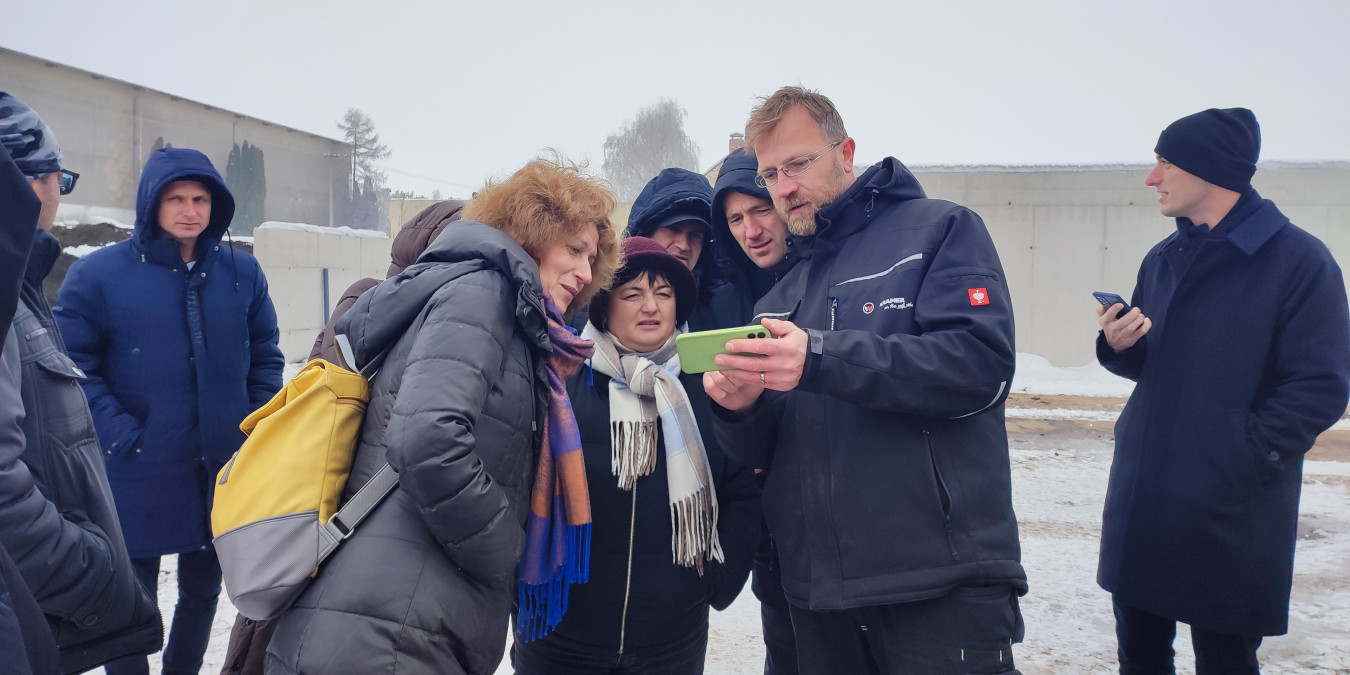Czech experience for Moldovan farmers: turning waste from a pollutant into an environmentally friendly fertiliser
Published: Dec 15, 2023 Reading time: 4 minutes Share: Share an article
In recent decades, waste management has become a global issue with negative consequences for the world's population. In Moldova, the waste management problem has also worsened over the years. According to the latest data, our country produces about 4 million tonnes of waste annually, of which we only recycle around 600 thousand. These figures represent a huge blow to the environment, but unfortunately, the problem does not end there. In addition to all those tonnes of rubbish, there is an even greater amount of animal waste - around 6 million tonnes yearly! Failure to properly manage this waste inevitably leads to several major problems, including water and air pollution, soil degradation, wasted resources due to the consequences of pollution, etc.
Although waste is a source of pollution, its effective management can also bring benefits. For example, properly managing manure through composting solves many problems simultaneously. Firstly, composting allows organic waste to process completely, so we do not need to create additional landfill sites. Secondly, the resulting high-quality organic fertiliser leads to organic agricultural production. Last but not least, it helps improve the country’s ecological situation, which is currently under threat.
While some people in rural areas use manure as fertiliser, others throw it indiscriminately into the environment or, at best, take it to the village dump. A survey of Southern Development Region landfills by the Waste Governance project found that about 60% of solid waste dumped was manure.
To promote the proper management of animal waste, People in Need Moldova has undertaken a series of actions, primarily targeting farmers and small dairy producers in the north of the country, who will receive comprehensive support from our organisation from 2022 onwards through the MILK project ("Modernisation, innovation, and use of knowledge for the dairy sector in Moldova"). Given the importance and complexity of the issue at stake, we have organised a series of training sessions featuring experts in the field and academics from the Republic of Moldova. Specialists explained the importance of manure processing and the benefits they can derive from it. The next stage was a study visit to Prague, where a group of training participants had the opportunity to learn about Czech waste processing experiences.
The study visit included various informative activities to improve the participants' understanding of efficient waste management methods and familiarise them with the best practices in the fields. To see how waste transforms into valuable organic fertiliser, the delegation of Moldovan farmers visited three composting plants in different locations in the Czech Republic: Blatnice, Třebíč, and Neškaredice.
Visitors saw each stage of waste processing, from collection to the production of nutrient-rich compost. At the same time, we provided information on business models and best practices for creating a sustainable and profitable composting platform. They saw the composting station in Blatnice, operated by the company "ProFarm". It started processing biodegradable waste on a small scale in 2014 and has since increased its processing capacity to 2,500 tonnes. The company currently serves nine municipalities and two cities and processes a wide range of materials: manure, leaves, twigs, plant residues, vegetable food waste, sawdust, straw, etc.
The MILK project is funded by the Czech Development Agency and implemented by People in Need Moldova to support small farmers - the cornerstone of Moldova's dairy sector.



